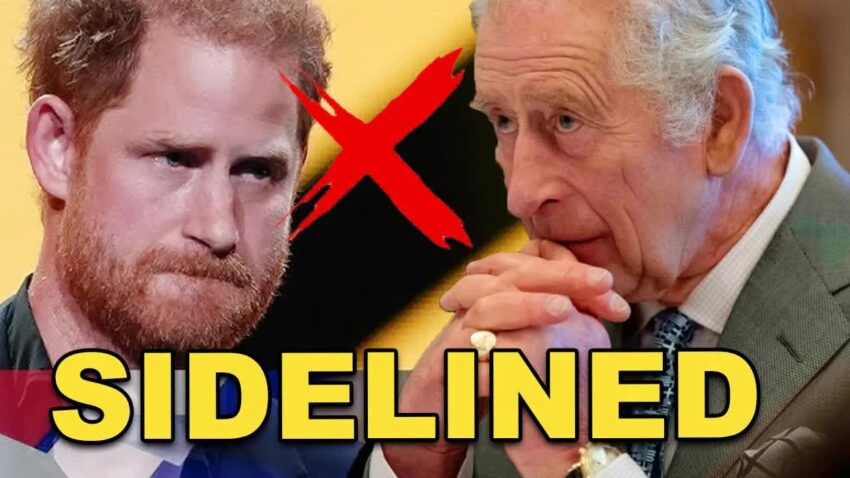Prince Harry finds himself once again on the sidelines, joining a growing list of individuals who will not be serving as councillors of state.
This news comes as the King prepares for surgery next week, making the issue of councillor eligibility even more crucial.
According to The Times, Andrew, Harry, and Beatrice have been sidelined from acting as substitutes for the King, while Anne and Edward have been added to the list of eligible councillors.
To understand the significance of this decision, it’s important to know what a councillor of state is.
Essentially, they are individuals who can step in for the British monarch in the event that they are unable to fulfill their duties.
This could be due to illness or being out of the country.
Typically, the councillors of state include the consort of the monarch and the next four adults in line to the throne over the age of 21, with the exception of the heir apparent who can act from the age of 18.
Under normal circumstances, both Harry and Andrew would be eligible to serve as councillors of state.
However, the current list of eligible individuals includes the Queen, Prince William, Prince Harry, Prince Andrew, Princess Beatrice, Princess Anne, and Prince Edward.
Notably, Anne and Edward have been given a special rule, allowing them to serve as councillors for life, unlike Harry, Andrew, and Beatrice.
They will eventually be replaced by the Wales children, Prince George, Princess Charlotte, and Prince Louis, as they come of age.
During the second reading of the Bill in the Lords on November 21st, 2022, Lord True, Lord Privy Seal, and Leader of the Lords stated that only working members of the royal family will be called upon to act as councillors of state.
As Harry and Andrew are no longer working members, their chances of being called upon are now zero.
This news has been met with relief from people across Britain and the Commonwealth.
Fortunately, it seems that there won’t be a need for anyone to step in as a councillor of state next week during the King’s surgery.
Dr. Craig Prescott, a constitutional law lecturer at Royal Holloway, University of London, explained that the statement about only working royals being called upon was a way to simplify the situation.
It also helps avoid any potential malice towards Harry.
While signing letters patent to appoint councillors is a simple task, it is important for the King to have a plan B in case of emergencies or urgent Privy Council meetings.
In the past, there have been instances where councillors of state were called back to the UK or even held meetings at airports to ensure there were enough individuals to act on behalf of the Sovereign.
Princess Margaret was once asked to return to London due to a shortage of councillors.
However, it remains unclear how Harry and Andrew are handling this news.
It is likely that Harry feels slighted, as he often does, while Andrew may not be too bothered by it.
Ultimately, it is good news for the rest of the world that Harry and Andrew will not be serving as councillors of state anytime soon, if ever again.
The decision provides stability and ensures that only working members of the royal family will be called upon to fulfill these crucial roles.
As for the discussion surrounding King Charles and his approach towards Harry and Meghan, opinions vary.
Some believe the palace should be more proactive in anticipating their moves, while others acknowledge the challenges of predicting their actions.
The importance of addressing issues related to the Sussex children’s titles and legitimacy within the royal family is also highlighted by viewers.
In conclusion, the exclusion of Prince Harry and Prince Andrew as councillors of state brings both relief and stability to the British monarchy.
It signals a shift towards relying on working members of the royal family to fulfill these important roles.
The decision also raises questions about the palace’s approach to managing the actions of Harry and Meghan and the need for transparency regarding the Sussex children’s legitimacy.
As the royal family continues to navigate these challenges, it is clear that their decisions have far-reaching implications both within Britain and beyond.
